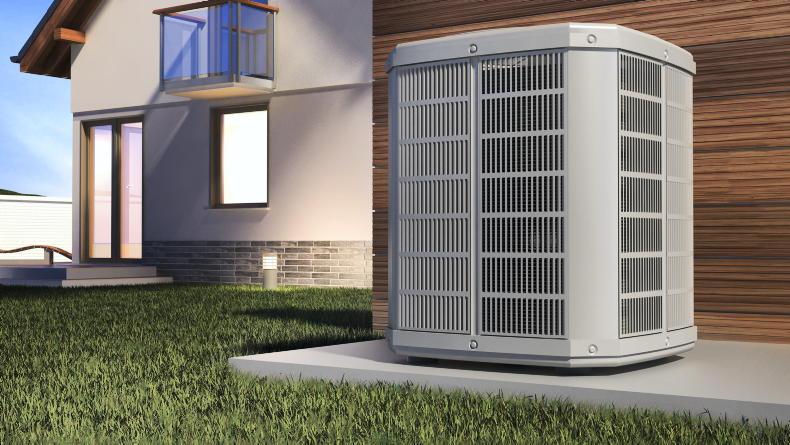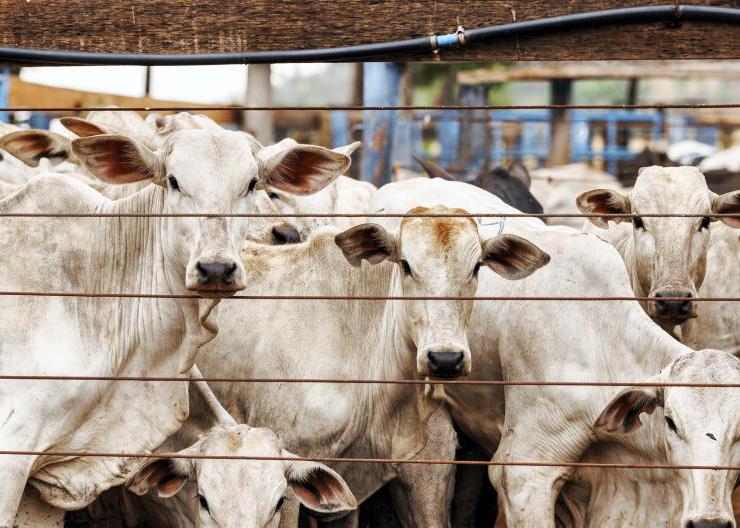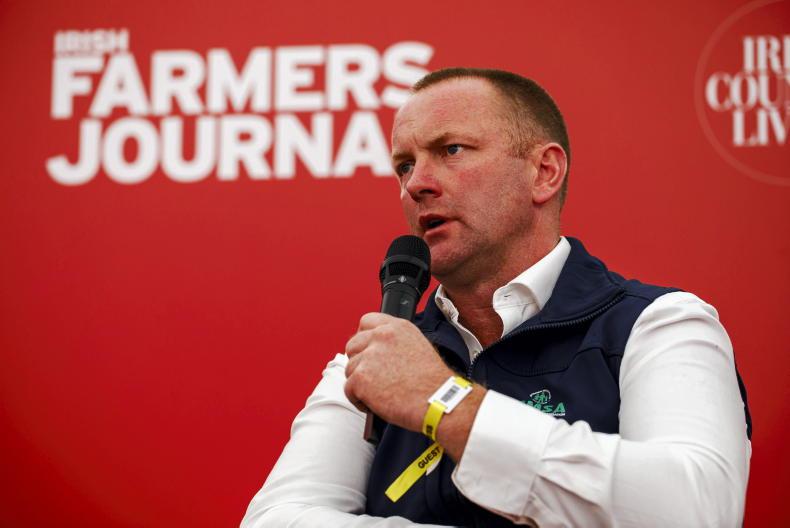After Budget 2023 was announced by the Government last week, my husband and I sat down to discuss what these decisions will mean for our farm and our family. I’m sure many farming families did the same.
As a “cost of living” budget, the spend priorities are clearly aimed at getting Irish citizens through the winter months and into 2023.
But, as it has been pointed out many times since the announcement (and was well-covered in last week’s Irish Farmers Journal), the devil is in the detail for many of these budgetary decisions – and we are still lacking many details. Once-off payments to help with rising energy costs and the general cost of living, while welcome, might also be considered band-aid solutions.
According to the Economic and Social Research’s (ESRI), the welfare measures – combined with once-off payments – announced in the 2023 budget will help insulate most Irish households from rising inflation costs over the winter, but the latter half of 2023 may not be as easy for them.
“Below forecast inflation increases to tax credits and welfare payments next year will mean many lower-income households will experience real-term cuts in living standards in the latter half of 2023 without a repeat of the welfare bonuses, lump sum payments and household energy credits,” their report reads.
Clarity on retrofitting
Many Irish farm houses are older dwellings in need of energy upgrades. The Government has committed to €337m to fund 37,000 home energy upgrades, which will include upgrades to households at a high risk of energy poverty. They have also introduced a new low-cost loan scheme for home energy retrofits.
These announcements are welcome, but only if you can afford to take on a retrofit. These Government grants aim to cover roughly half of the cost, which means the homeowner will need a sizeable lump sum (or loan) to cover the remaining costs.
With interest rates due to rise in the next few months, this will likely remain an unaffordable option for many rural homeowners. The lower-cost loan scheme may help, but the exact details on how this scheme will unfold are not yet fully understood.
Concerns
The IFA released a statement in response to the budget, saying while some decisions are clearly welcome and needed, they will only partly cover the increases in cost of living and farming.
Rose Mary McDonagh is chair of the IFA farm business committee. She will be a financial panellist at this year’s Women & Agriculture Conference (see page 16). She said the mood of farming families, is one of worry.
“Every person you talk to, they have the same concerns – inputs are out of control at the moment,” she says. “What will the price of fertiliser be next year – and will there even be availability? Then there’s the cost of feed and electricity.?
“In every farming enterprise, electricity is a core component in addition to the input costs. There are a good few things in the budget where we’ll need to wait to see the detail.”
Response to budget
To help senior citizens offset the increased cost of living, there will be a €12 increase in the weekly State pension.
There will also be in increase in eligibility for the fuel allowance. Those already in receipt of the fuel allowance will get an additional €400 once-off payment in November.
In a statement released by senior’s charity ALONE, CEO Seán Moynihan says this budget will not help older citizens through the year. The charity is disappointed the Government has not honoured its commitment to benchmark the pension (to 34% of the average weekly wage).
Research commissioned by the Drinks Industry Group of Ireland reports that electricity prices for Irish businesses are 60% higher than the EU average.
A €1.2m package, the Temporary Business Energy Support Scheme (TBESS), has been announced to provide supports for eligible businesses hit by a 50% increase (or more) in energy costs over the past year. Additionally, small to medium sized enterprises (SMEs) can avail of a long-term, low-interest loan of up to €500,000 and a new grant supplied through the Local Enterprise Office will be available for businesses to help them reduce their carbon footprint and lower energy costs.
However, a VAT increase to 13.5% (from the pandemic-reduced VAT rate of 9%) from March 2023 has left many small hospitality businesses worrying, with Restaurant Association of Ireland chief executive Adrian Cummins saying the TBESS is welcome but it is not enough to prevent business closures.
“Input costs continue to rise, including food costs and energy consumption will only increase during winter months,” he states. “The 9% VAT rate ending in February of next year will only increase costs for consumers and raises concern about Ireland’s competitiveness compared to our EU counterparts.”
Meanwhile, domestic consumers can expect a €600 credit to go towards this year’s electricity bills (to be paid out in three installments of €200 in November (2022), January and March). And €340m will be provided to schools, community groups, health services and other organisations to help with increasing energy costs.
Daragh Cassidy, head of communications at Bonkers.ie (broadband, energy, mortgage and insurance providers comparison website), says we are most definitely living in a time of crisis.
“It is a worrying time and we’re seeing suppliers leave the market, as well,” he tells Irish Country Living. “It’s a difficult time for households across the country – we have to deal with rising mortgage rates, and people on tracker mortgages have seen their rates go up.”
Daragh tells Irish Country Living that when prices are rising there are two ways to keep your standard of living: you can receive a generous wage increase or consume less. In the current climate, many businesses will struggle to increase wages so this option may be wishful thinking for many with the latter option actually the only option.
“The ‘laser focus’ that Irish people have on getting better car insurance should be there for everything else,” he says. “Switching your mortgage, gas, electricity, your mobile phone. Not all groceries and goods have to be branded when you’re shopping – be mindful of the tricks used to make you overspend. Look at purchasing from reselling websites as a way to buy secondhand goods and, if you’re buying a new appliance, look at its energy efficiency.”
It’s easy for the average consumer to think changes they make might not make a difference in the grand scheme of things, but Daragh believes it is up to us all to make a collective difference when it comes to energy usage.
“Little changes can make a big difference, even if it’s just remembering to turn off the lights, using colder washes,” he says. “Using less energy is going to save you a bit more money, as well.”
Read more
Consumer: The increasing cost of rural hospitality
Rural Ireland's seniors at high risk for experiencing energy poverty this winter
After Budget 2023 was announced by the Government last week, my husband and I sat down to discuss what these decisions will mean for our farm and our family. I’m sure many farming families did the same.
As a “cost of living” budget, the spend priorities are clearly aimed at getting Irish citizens through the winter months and into 2023.
But, as it has been pointed out many times since the announcement (and was well-covered in last week’s Irish Farmers Journal), the devil is in the detail for many of these budgetary decisions – and we are still lacking many details. Once-off payments to help with rising energy costs and the general cost of living, while welcome, might also be considered band-aid solutions.
According to the Economic and Social Research’s (ESRI), the welfare measures – combined with once-off payments – announced in the 2023 budget will help insulate most Irish households from rising inflation costs over the winter, but the latter half of 2023 may not be as easy for them.
“Below forecast inflation increases to tax credits and welfare payments next year will mean many lower-income households will experience real-term cuts in living standards in the latter half of 2023 without a repeat of the welfare bonuses, lump sum payments and household energy credits,” their report reads.
Clarity on retrofitting
Many Irish farm houses are older dwellings in need of energy upgrades. The Government has committed to €337m to fund 37,000 home energy upgrades, which will include upgrades to households at a high risk of energy poverty. They have also introduced a new low-cost loan scheme for home energy retrofits.
These announcements are welcome, but only if you can afford to take on a retrofit. These Government grants aim to cover roughly half of the cost, which means the homeowner will need a sizeable lump sum (or loan) to cover the remaining costs.
With interest rates due to rise in the next few months, this will likely remain an unaffordable option for many rural homeowners. The lower-cost loan scheme may help, but the exact details on how this scheme will unfold are not yet fully understood.
Concerns
The IFA released a statement in response to the budget, saying while some decisions are clearly welcome and needed, they will only partly cover the increases in cost of living and farming.
Rose Mary McDonagh is chair of the IFA farm business committee. She will be a financial panellist at this year’s Women & Agriculture Conference (see page 16). She said the mood of farming families, is one of worry.
“Every person you talk to, they have the same concerns – inputs are out of control at the moment,” she says. “What will the price of fertiliser be next year – and will there even be availability? Then there’s the cost of feed and electricity.?
“In every farming enterprise, electricity is a core component in addition to the input costs. There are a good few things in the budget where we’ll need to wait to see the detail.”
Response to budget
To help senior citizens offset the increased cost of living, there will be a €12 increase in the weekly State pension.
There will also be in increase in eligibility for the fuel allowance. Those already in receipt of the fuel allowance will get an additional €400 once-off payment in November.
In a statement released by senior’s charity ALONE, CEO Seán Moynihan says this budget will not help older citizens through the year. The charity is disappointed the Government has not honoured its commitment to benchmark the pension (to 34% of the average weekly wage).
Research commissioned by the Drinks Industry Group of Ireland reports that electricity prices for Irish businesses are 60% higher than the EU average.
A €1.2m package, the Temporary Business Energy Support Scheme (TBESS), has been announced to provide supports for eligible businesses hit by a 50% increase (or more) in energy costs over the past year. Additionally, small to medium sized enterprises (SMEs) can avail of a long-term, low-interest loan of up to €500,000 and a new grant supplied through the Local Enterprise Office will be available for businesses to help them reduce their carbon footprint and lower energy costs.
However, a VAT increase to 13.5% (from the pandemic-reduced VAT rate of 9%) from March 2023 has left many small hospitality businesses worrying, with Restaurant Association of Ireland chief executive Adrian Cummins saying the TBESS is welcome but it is not enough to prevent business closures.
“Input costs continue to rise, including food costs and energy consumption will only increase during winter months,” he states. “The 9% VAT rate ending in February of next year will only increase costs for consumers and raises concern about Ireland’s competitiveness compared to our EU counterparts.”
Meanwhile, domestic consumers can expect a €600 credit to go towards this year’s electricity bills (to be paid out in three installments of €200 in November (2022), January and March). And €340m will be provided to schools, community groups, health services and other organisations to help with increasing energy costs.
Daragh Cassidy, head of communications at Bonkers.ie (broadband, energy, mortgage and insurance providers comparison website), says we are most definitely living in a time of crisis.
“It is a worrying time and we’re seeing suppliers leave the market, as well,” he tells Irish Country Living. “It’s a difficult time for households across the country – we have to deal with rising mortgage rates, and people on tracker mortgages have seen their rates go up.”
Daragh tells Irish Country Living that when prices are rising there are two ways to keep your standard of living: you can receive a generous wage increase or consume less. In the current climate, many businesses will struggle to increase wages so this option may be wishful thinking for many with the latter option actually the only option.
“The ‘laser focus’ that Irish people have on getting better car insurance should be there for everything else,” he says. “Switching your mortgage, gas, electricity, your mobile phone. Not all groceries and goods have to be branded when you’re shopping – be mindful of the tricks used to make you overspend. Look at purchasing from reselling websites as a way to buy secondhand goods and, if you’re buying a new appliance, look at its energy efficiency.”
It’s easy for the average consumer to think changes they make might not make a difference in the grand scheme of things, but Daragh believes it is up to us all to make a collective difference when it comes to energy usage.
“Little changes can make a big difference, even if it’s just remembering to turn off the lights, using colder washes,” he says. “Using less energy is going to save you a bit more money, as well.”
Read more
Consumer: The increasing cost of rural hospitality
Rural Ireland's seniors at high risk for experiencing energy poverty this winter









SHARING OPTIONS